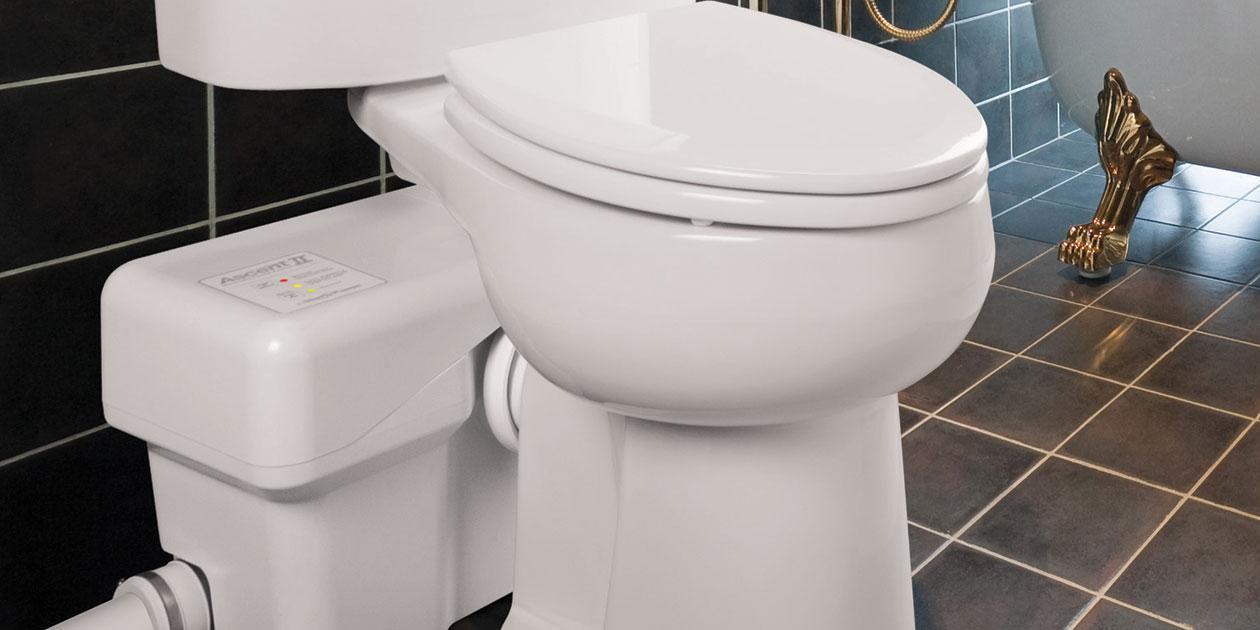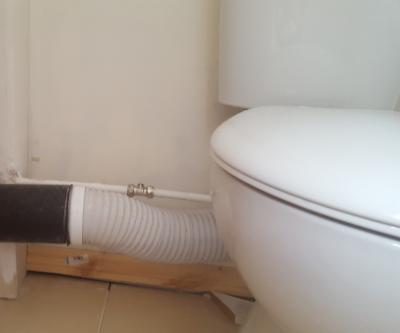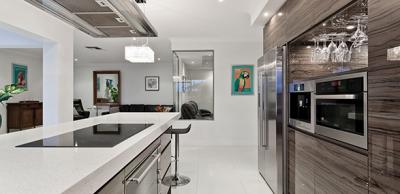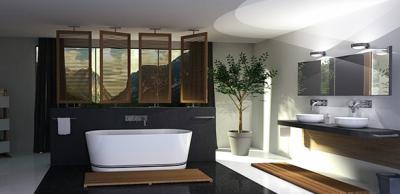When can I install a macerator instead of a gravity fed WC?
Approved Document Part G provides that ‘adequate and suitable sanitary conveniences’ should be provided in rooms provided to accommodate them.
The use of a macerator and pump allows for an extra toilet to be provided in places such as under the stairs, basements or to a bathroom.
While drainage is covered in Approved Document H there are clauses in Part G that cover the appliances that discharge to the drainage system.
AD G 4.24(a) permits the use of a macerator ‘as long as there is also a wc discharging to a gravity system’.
In all cases both are required to discharge to an adequate drainage system.
AD G 4.24 in Approved Document G gives further guidance for installation of WCs as follows:
- Discharge from these appliances connected to a small bore drainage system discharging to a discharge stack. The outlet size from the appliance will depend on the manufacturer’s recommendations for their product taking account of the lengths and heights that these pipes can discharge.
- There are certain requirements that need to be checked before the use of such a system can be employed, it is necessary that these checks are made and the installation meets one of the standards shown below:
- BS EN 12050-1:2001 (superseded by BS EN 12050-1:2015) Wastewater lifting plants for buildings and sites and Principles of construction and testing. Lifting plants for wastewater containing faecal matter or
- BS EN 12050-3:2001 (superseded by BS EN 12050-3:2015) Wastewater lifting plants for buildings and sites. Principles of construction and testing. Lifting plants for wastewater containing faecal matter for limited applications.
If you are looking to specify or install a macerator then the system needs to comply to at least one of these Standards.
Once installed, the installation will need to be used and maintained in accordance with the manufacturer’s recommendations, some of the common recommendations include:
- The macerator should only be used for the removal of normal human waste, toilet paper and household WC cleaners, etc.
- Such items as cotton wool, sanitary towels, tampons, wet wipes, paper towels, condoms, hair, food waste, plastic bags, nappies, cigarettes, etc, all should be avoided at they will damage the appliance. A warning label is usually provided under the WC seat (where that appliance is connected) to show these foreign bodies should not be used.
- Descalents which are acid-based and aggressive cleaning agents as well as other solvents including oil, paint stripper should not be used as they will damage the appliance.
- Remember that these appliances pump wash basin, shower or bath water as well. Therefore where hot or heated water is used scale deposits are likely to occur in areas of hard water. Such scale can cause the mechanical seal to stick if the appliance is not used for long periods of time. The appliance should be tested at least every four weeks which will ensure all the parts are working as they should. Where lime-scale needs to be removed a non-acid based descalent should be used.
- The appliance should not be used if there is a power failure, common sense really.
- Any washers or appliances connected to the macerator should be kept in good condition to prevent dripping which may cause the unit to operate.
- Where the unit starts to release odours the charcoal filters should be changed.
In hard water areas limescale will build up and will eventually cause the macerator to fail.
One manufacturer recommends the use of a phosphoric acid (a mineral (inorganic) and weak acid having the chemical formula H3PO4). If the manufacturer’s instructions are followed, it is claimed that it can remove tough limescale, prolong the life of the unit and keep it running smoothly.
When specifying the units, potential owners should be aware of the ongoing maintenance costs, the electrical supply costs and noise that can be generated when the pump operates.
(Image courtesy of http://hps.plentech.com)
Sign up to the building bulletin newsletter
Over 48,000 construction professionals have already signed up for the LABC Building Bulletin.
Join them and receive useful tips, practical technical information and industry news by email once every 6 weeks.
Subscribe to the Building Bulletin




Comments
Make venting required
Submitted 4 years 4 months ago
noise
Submitted 4 years 3 months ago
Add new comment